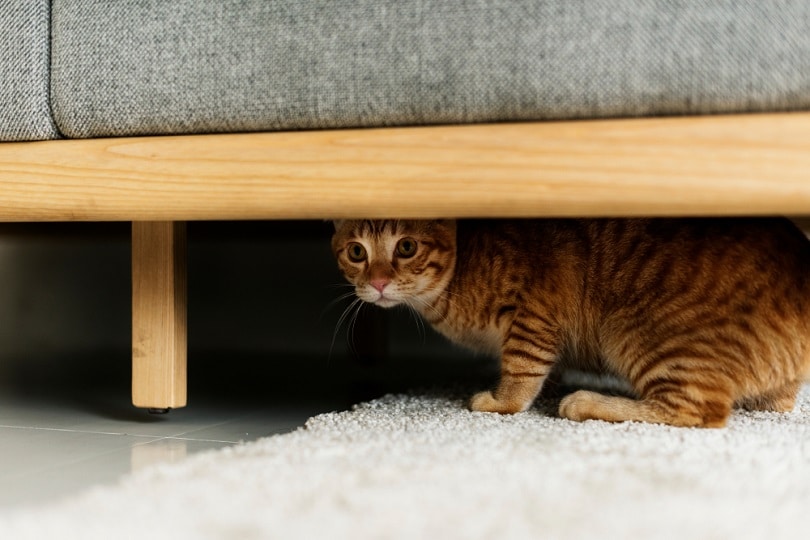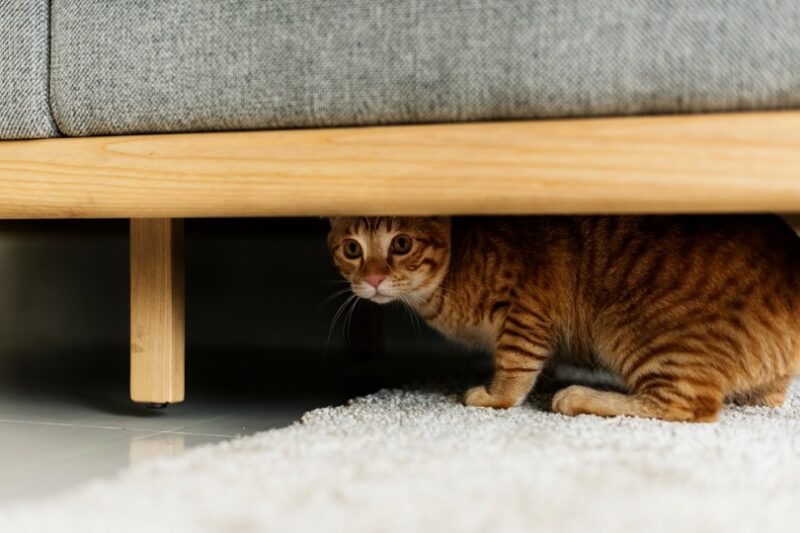Cats can struggle with change just as any species, so in times of stress, it is important to be more cautious of their needs. This is tough since cats don’t always outright tell us what is wrong and what we need to do to fix it.
Most cats relax and move on from their stress, but some have a harder time and may become sick. In this post, we explore cat stress and how it affects your cat’s mood and overall health. We’ll also discuss what you can do to fix the problem.
Understanding Cat Stress (and Why It Matters)
Stress, although seemingly harmless, can make cats sick if it isn’t resolved quickly.
Cats may become stressed because they don’t like their territory and normal routines disrupted. When normal suddenly becomes abnormal, cats feel the fight-or-flight senses that stress triggers. Sometimes stress is only temporary, and within a day or two your cat bounces back.
- A trip to the vet
- A family member or new pet visiting
- Random loud noises
- House renovations
- Living with another conflicting cat or pet
- A new partner or baby
- A new home
- Changes in the litter box location or material
These are short-lived stressors that usually resolve themselves in a short time. However short-term stress that doesn’t resolve can become more chronic and can result in major behavior changes and severe health problems.
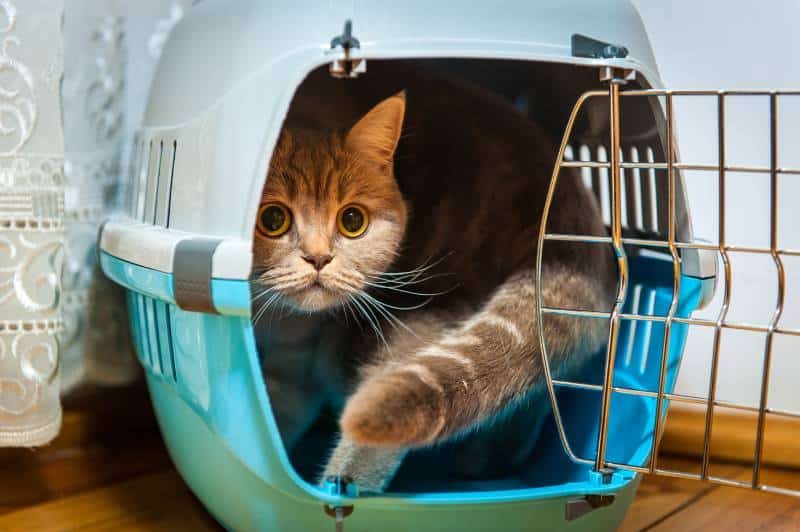
The Warning Signs of Chronic Stress in Cats
Identifying stress in cats is tricky since cats are very good at hiding their emotions and illnesses. As cat owners, no matter how long we’ve owned cats, sometimes we only notice the obvious changes in our pet’s behavior and health.
- Not eating or drinking
- Diarrhea
- Not using the litter box (or going outside the litter box)
- Frequent hiding
- Crying, moaning, hissing, growling, and other vocalizations
- Aggression against people and other animals
- Excessive grooming and scratching
- Unwillingness to play or cuddle
- Less social and lower energy levels
What Are the Risks of Chronic Stress in Cats?
If left unresolved, chronic stress can turn into serious health concerns. These can include:
- Illness
- Upper respiratory infections
- Self-mutilation
- Lowered immune system
How Do I Help My Cat?
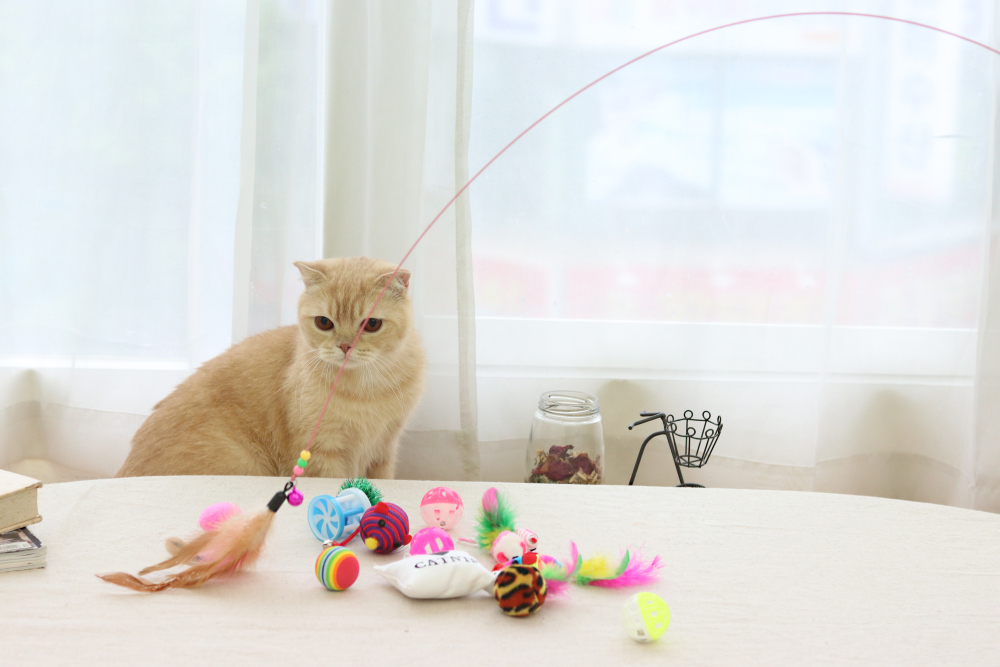
The best way to help your cat is to first find the source of the stress. Your next actions will greatly depend on what the stressor is and why your cat doesn’t like it. Until then, you can move on to enriching the space and seeking medical attention for your cat.
Enrich the Space
Next, enrich your cat’s environment so they have a space to call their own. Enriching your cat’s space provides a sense of control and peace, so your cat can escape to this place when they need to.
- Adding cat trees and shelves for climbing and scratching
- Adding cat-friendly plants for exploring and chewing
- Synthetic pheromone diffusers for relaxation
- Opening a window or adding a catio for fresh air
Seek Medical Attention
In addition to “catifying” your space, work with your vet regarding the best treatment plan for your cat’s health so your cat can bounce back quickly and safely.
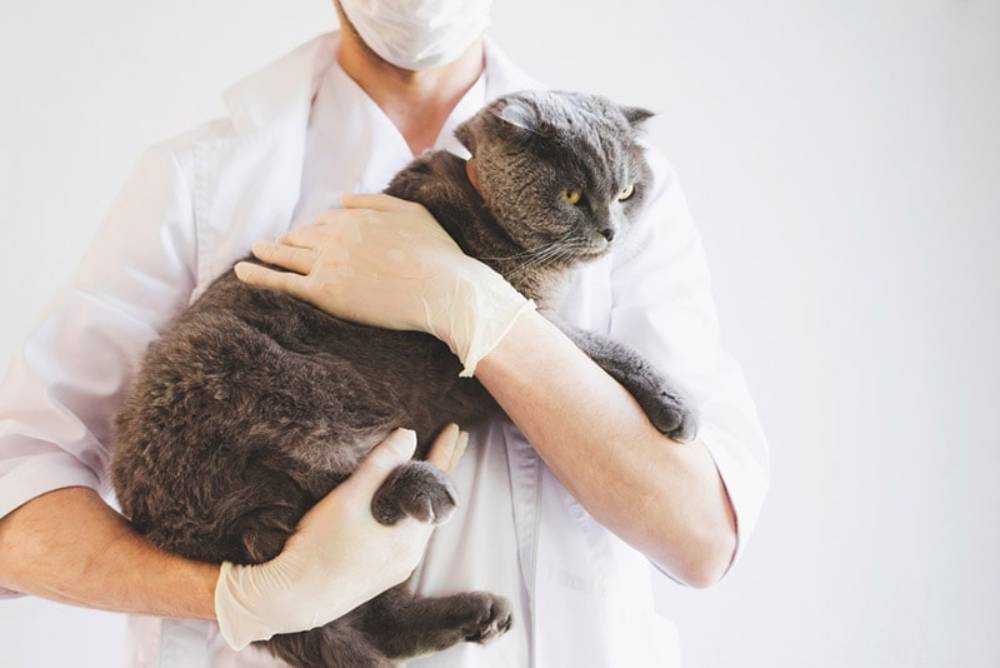

Conclusion
As a cat owner, dealing with a stressed cat at some point is likely. Usually, your cat will deal with the stress and then move on. But sometimes, the stress is too great and your cat falls ill. If this is the case, find the source of the stress immediately and provide a safe space for your cat while they receive medical attention.
Featured Image Credit: photosforyou, Pixabay

